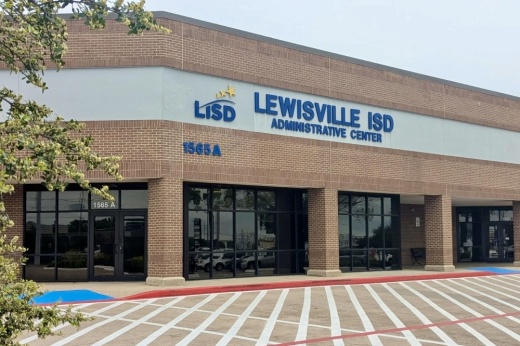Lewisville ISD officials are monitoring several state bills that could affect district finances and policies.
Superintendent Lori Rapp updated the board of trustees on the bills in mid-March as district staff follow the 89th Legislative Session. Chief Financial Officer Scott Wrehe also provided figures at the April 7 work session.
The details
At the conclusion of the March 14 deadline to file bills, the legislature filed over 1,300 education focused bills, with 160 related to property taxes, 153 related to school governance and 99 related to school finance, Rapp said. Of these bills, House Bill 1 and Senate Bill 1 would increase the safety and security state funding allotment, which would provide the district with approximately $346,683 million in additional funding.
Both bills would also change how the yield for golden pennies, or tier two pennies, is determined, officials said. These pennies are a portion of the property tax rate that is not subject to recapture. The bill would cause the yield amount to no longer be tied to statewide increases in property values, meaning the funds generated from this portion of the tax rate for fiscal year 2025-26 would be slightly less than FY 2024-25. The yield would then stay the same for 2026-27 and beyond, until changed by the legislature.
If a school district with high property values collects more state revenue than allotted, the state collects the excess revenue and distributes funds to other school districts through recapture, according to previous Community Impact reporting. The district anticipates losing about $12.6 million in recapture in fiscal year 2024-25, according to district documents.
House Bill 2 would increase the basic per-student allotment by $395, raising it from $6,160 to $6,555. This equates to an estimated $14.7 million in additional funding annually, Wrehe said. Additionally, the bill would include automatic biennial increases tied to property value growth, according to previous Community Impact reporting.
The bill would also provide increases to the compensatory education and transportation allotments and the career, and military readiness bonus totaling around $2.4 million in additional annual funding for LISD, according to district documents.
The district adopted a $4.5 million deficit for FY 2024-25 and could see an increased funding loss due to enrollment decline. According to demographer reports, enrollment could decline by up to 900 students in FY 2025-26, which equates to $5.5 million in revenue loss at the current state funding allotment of $6,160 per student.
More details
The district is also monitoring the progress of House Bill 124, which would increase the school safety allotment to $14 per student and $37,000 per campus in addition to increases outlined in House Bill 1 and Senate Bill 1, Rapp said. This allotment provides funds for armed security guards mandated in the 88th Legislature’s House Bill 3.
The state currently allots school districts with $10 per student and $15,000 per campus for safety needs. At the district’s 47,000 student enrollment, this amounts to over $1.5 million, but officials said they would need between $60,000 to $70,000 per campus to cover the cost of an armed security guard annually, which is around $3.8 million for the district’s over 60 campuses.
Also of note
The district could see changes to its disciplinary policies if House Bill 6 is codified, Rapp said. The bill proposes a 10-day limit on in-school suspensions and the three-day limit for out-of-school suspensions would remain unchanged. It also proposes to expand the reasons for which students below third grade can be placed in out-of-school suspension to include conduct that threatens the immediate health and safety of other students in the classroom or conduct that results in repeated or significant disruption to the classroom.
If passed, the bill would also end the requirement to send students to a disciplinary alternative education program for possessing, using, selling, giving or delivering to another person an e-cigarette and makes certain misdemeanor conduct subject to mandatory DAEP placement, including some weapons offenses.
Additionally, while LISD has an out-of-district transfer policy, House Bill 122 would mandate that school districts have open enrollment policies and accept out-of-district transfers subject to capacity limits, Rapp said.





